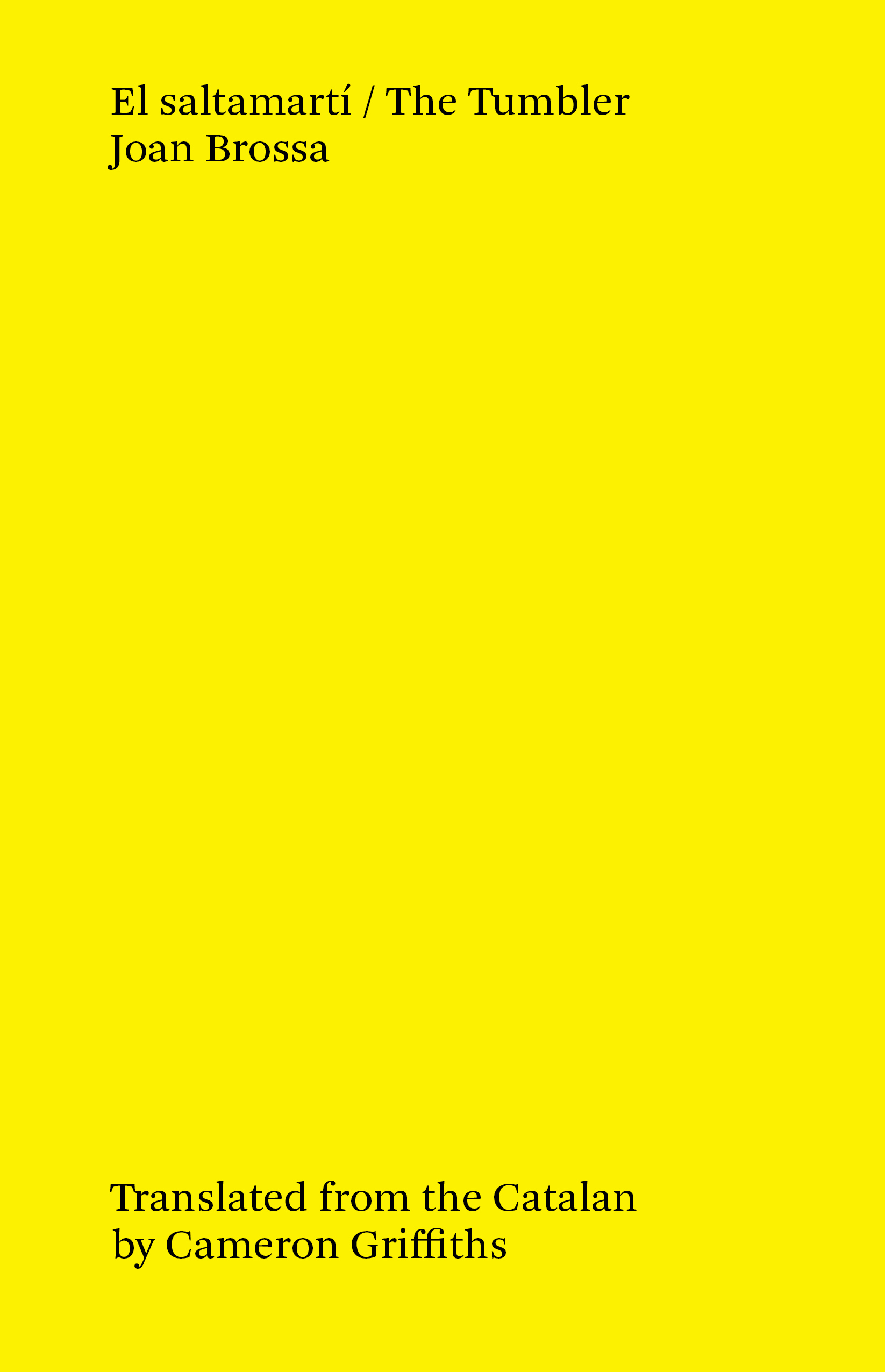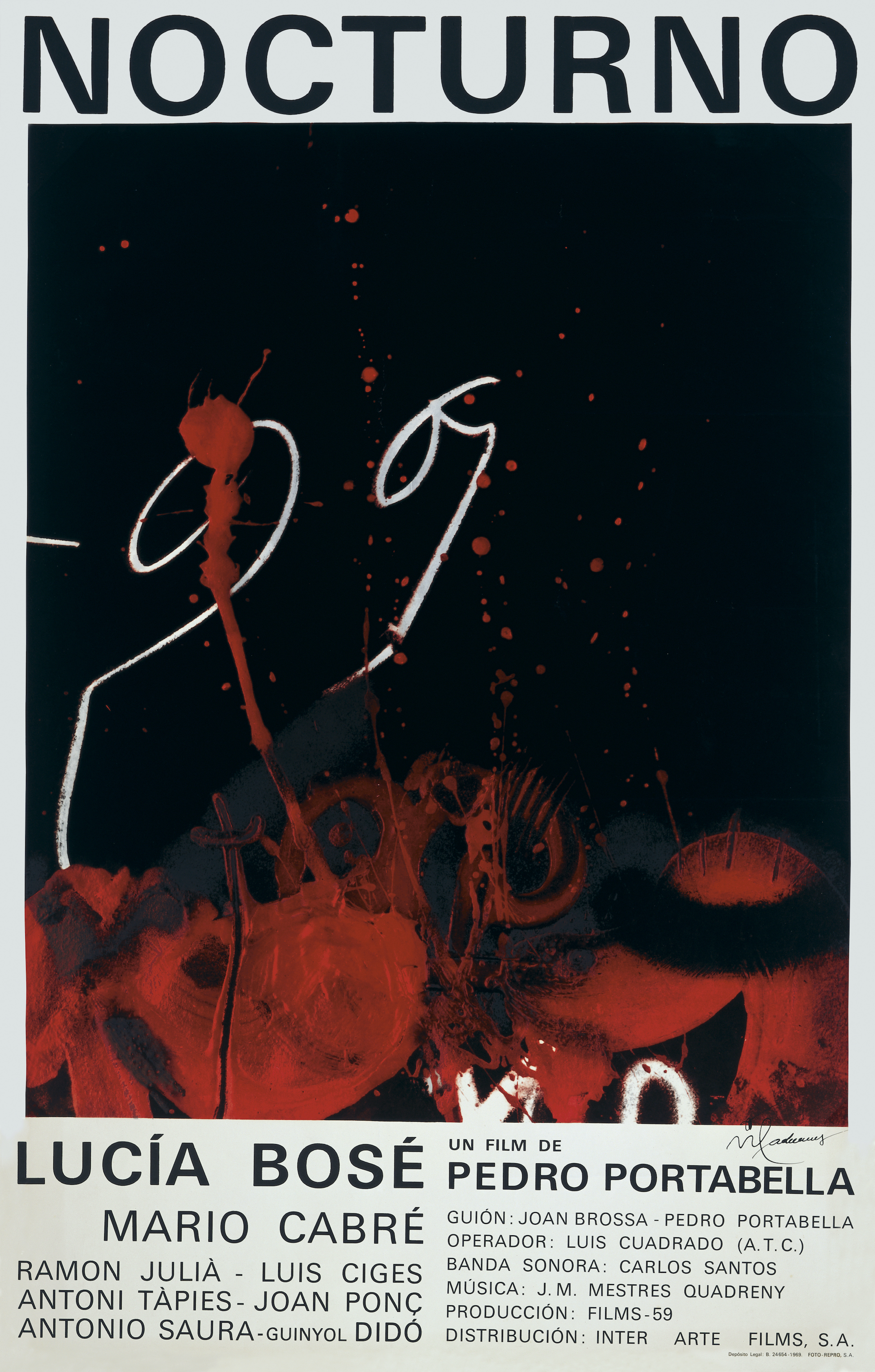
Joan Brossa, El saltamartí / The Tumbler, Trans.
by Cameron Griffiths, Ed. by Cameron
Griffiths & Dominic Jaeckle, Tenement Press,
2021.
Aquests versos, com
These lines, like
una partitura, no són més
sheet music, are no more
que un conjunt de signes per a
than a collection of signs to
desxifrar. El lector del poema
decipher. The reader of the poem
és un executant.
is a performer.
(From Brossa’s Prelude)
Joan Brossa creates distilled excitement. He is both wise and wild. His poems are surreal and matter-of-fact, playful and minimalist and utterly original. In his ability to make it new, Brossa is an essential modern poet. - Colm Tóibín
This first-time
English translation of The Tumbler [El saltamartí]—a collection of
poems written by Joan Brossa in 1963 (and first published in Catalan
in 1969)—presents a convergence of Brossa’s critical and cultural
concerns. With his growing sense of social commitment and support of
Catalan independence, freedom stands as both Brossa’s primary
subject and conceptual framework in this collection. The Tumbler is
an anti-clerical and anti-authoritarian work that brings together
verse vignettes and visual poems to revivify the proverbial, often
with comic and subversive effect. Brossa plays with image,
iconography and intimation as both verbal and visual elements vie for
our attentions throughout these pages.
In The Tumbler, traditional poetic stanzas sit side-by-side with a more liberated poetic form—one Brossa referred to as a synthetic poetry—in which he employs a straightforward, everyday language (it is the language of the working classes with which he identifies). Always the innovator, Brossa reinvigorates this language so as to evince an accessible and archly political poetry that demands our critical and creative participation. Challenging the very notion of an author’s hold over these texts, Brossa invites us to approach these works with a critical autonomy all of our own, and The Tumbler stands a critical study of freedom. The poet places himself as a critic of established power systems, accepted meanings and held conceptualizations of liberty. His movement towards an aesthetic autonomy (a journey we can charter from his early books on) arrived at its final destination in a complete break with language—his visual poetry—and in this collection we encounter this mixture of verse and visual poems for the first time. An examination of poetic license that proves as pertinent today as it did upon its first publication.
Due to the book’s
anti-Franco sentiments—and Brossa’s distinct support of the
Catalan independence movement—both the first and second Catalan
editions of The Tumbler suffered due to censorship. Publishers of the
first Castilian translation released only a selection of works from
the manuscript due to the political implications of this poetry
(leaving out 50 poems in total), and the lion’s share of Brossa’s
bibliography remains untranslated. Cameron Griffiths’ new
translation is the most extensive English language publication of
Brossa’s poetry to date. A bi-lingual English and Catalan edition
based upon the complete Proa Edition, Barcelona, 1985. Griffiths’
rendition of The Tumbler includes all 150 poems (7 visual poems and
143 verse works). Brossa’s capacity for subversion, misdirection
and irony expresses an insistent analysis of freedom as both a
political and personal precept and The Tumbler stands as testament to
Brossa’s tremendous versatility as an artist and poet.
In addition to being one of the most interesting and striking poets of his period, Brossa had a sensitivity and a receptive capacity that made him an extremely rigorous and acute reader-viewer. Painting, cinema, music... all were present in his day-to-day literary activity. He fed voraciously off one or other of these mediums and, from the outset, his critical vision was decisive for many. Brossa has always been a solid reference point; and remains an endearing and comforting presence. - Pere Portabella
Since 1969, El saltamartí has not lost even a crumb of its subversive gift and luminous capacity to surprise and arouse the unexpected in the hinge of silence and colloquy. The reader’s anxiety will arise precisely from the apparent obviousness; from the anti-poetic or a-poetic nature that, at first glance, Brossian texts appear to present. It is, in fact, a total rejection of the expressive conventions to which poetry is generally ascribed as a literary genre. The distribution of sentences or phrases in lines or stanzas seems arbitrary and arrhythmic; the poems can appear to lack construction, the themes and images can seem externally trivial or, simply to not exist: in short, the reader may experience some resistance to accepting them as poems. - Pere Gimferrer
Playful, sharp, unbelievably fresh, ironic and free, Brossa’s poetry translates wonderfully into English as an ode to irreverence, a work of art and a magician’s trick. As the curtain rises the words appear, the wordsmith is here, the wizard is here. Hold tight. Abracadabra. - Irene Solá
These gloriously acerbic, droll, at times political poems offer minimalist conundrums that refute solution and dissolution.
Joan Brossa’s brilliantly oblique juxtapositions, micro-observations, and deadpan takes on the quotidian are enigmatic without being obscure. The Tumbler is protoconceptual pantomime: The words are here, whether you read them or not. And nothing on earth can change that. - Charles Bernstein
Brossa asks us to look, then look again; to think, then think again. Like the flaneur carrying a small mirror through the streets, his glimpse becomes a view. We see the world for a moment—clear, extracted, never magnified and so, large as life. How wonderful that Tenement Press has brought Brossa’s wry, wise, and rueful gaze to new readers. - Anne Michaels
A breath of fresh (Catalan) air or a scream? This book, in the original & in this excellent English translation, is both at the same time. It is fresh in the plain openness and open plainness of the language, & a scream of pure delight when you discover that the tumbler of the title is the people, who, despite despotic abuse, will ever land on their feet. This is a poetry all in support of that tumbler, doing its best to help right itself—bluntly, without irony, and with the iron of conviction that freedom is a core value. As Brossa says elsewhere, there are some books that can’t be put down—this work is one of them. - Pierre Joris
Brossa was one of the most important writers in post-war Europe and transformed the way we think about poetry. This collection is a testament to his continuing ability to move, tease and provoke. - John London


Posters for Pere Portabella’s Nocturno 29 (1968) & Umbracle
(1972); two motion pictures written by Portabella and Brossa, ©
Films 59.
Joan Brossa (1919–1998) was born in Barcelona into a family of artisans. He began writing when he was mobilised in the Spanish Civil War and, following an introduction to surrealism by way of the friendship and influence of Joan Miró and Joan Prats, would fuse political engagement and aesthetic experiment through sonnets, odes, theatre, sculpture and screenplay within a neo-surrealist framework. Brossa founded the magazine Dau al Set in 1948 and, during the fifties and sixties, his poetry was increasingly informed by collectivist concerns. His collection El saltamartí (1963) presented a synthesis of themes both political and social, and the subsequent publication of Poesia Rasa (1970), Poemes de seny i cabell (1977), Rua de llibres (1980)—and the six volumes of Poesia escénica (published between 1973 and 1983)—saw Brossa stake his place as a central figure in contemporary Catalan literature.

No comments:
Post a Comment
Note: Only a member of this blog may post a comment.